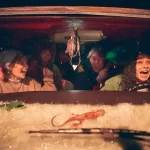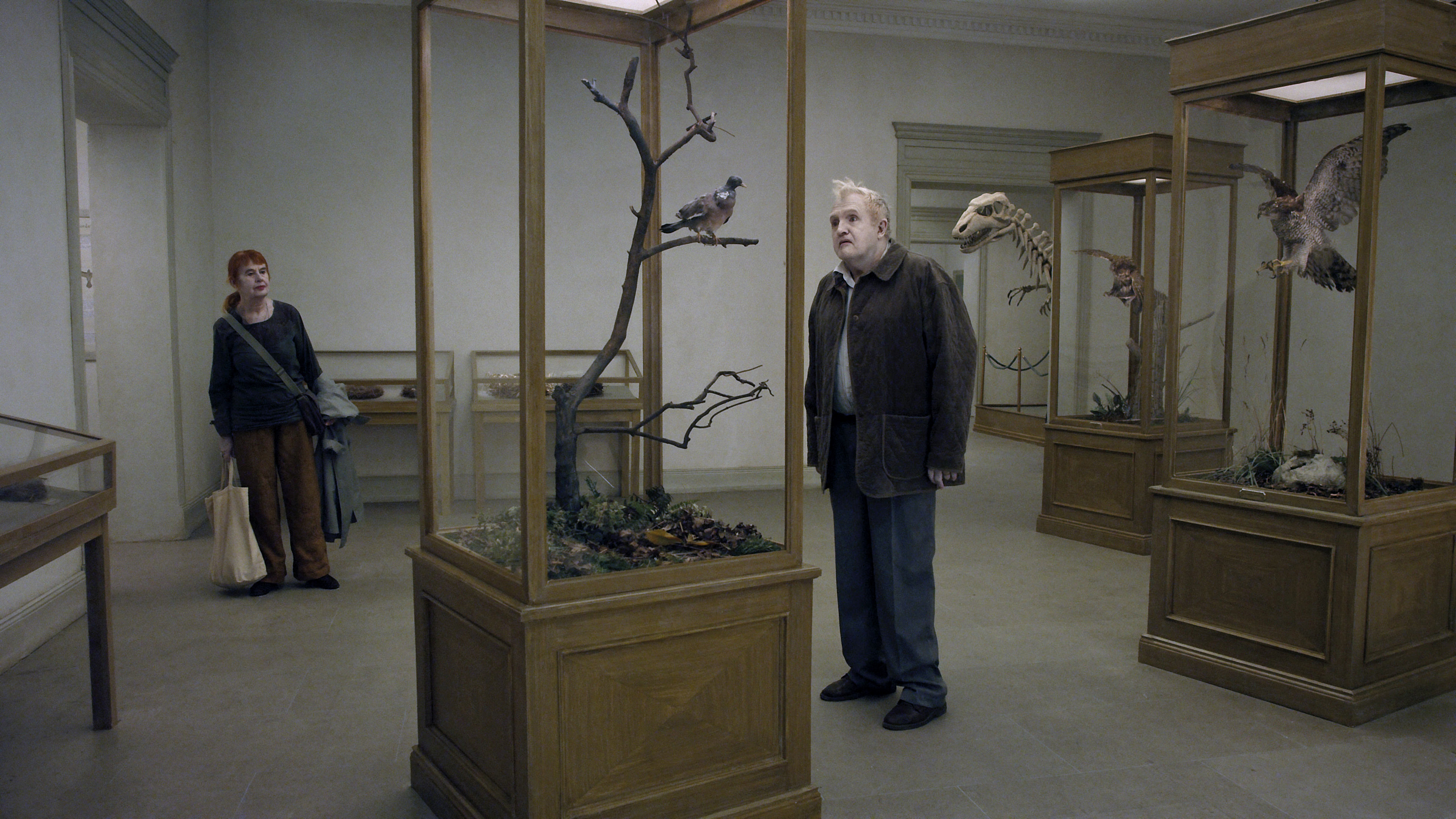Home Video Hovel- Melancholia, by David Bax
Lars von Trier – brilliant though he may be – has often tripped himself up by reaching too far for an offensive joke. That’s the case both in his films and in real life, as you’ll recall from last year’s Cannes film festival. Yet the humor in Melancholia – and there is more than you’d think, particularly in the film’s first half – is surprisingly crowd-pleasing and old-fashioned. The laughs come mostly from repeated silent behaviors by certain people – the butler, the wedding planner, the young new coworker to Kirsten Dunst’s character. One bit, however, in which Stellan Skarsgård throws down a plate of food and marches off, only to stomp back into frame after realizing the plate didn’t break and finishing the job before stomping off again, is truly inspired.
All this levity is the backdrop to Dunst’s Justine, on her wedding day, slipping gradually but inevitably into a grave depression. The second half of the story takes place an unstated number of days later (probably about a week) at the same expansive estate that hosted the wedding. That property belongs to Justine’s sister, Claire (Charlotte Gainsbourg), and her husband, John (Kiefer Sutherland). Dunst, Gainsbourg and Sutherland inhabit most of the film and each is doing some of the best work of her or his career.
Despite the absolute necessity of the first half, it’s the second half with which I really connected. Von Trier’s quieter, less populated scenes allow for the powerful moments to resonate, such as a heartbreaking sequence wherein Claire becomes angry with her favorite horse (which is nowhere near as ridiculous as that sounds). The tension there, and in the other scenes in the latter half of the film, is spawned in large part by the discovery of a giant rogue planet called Melancholia, which is hurtling through space and may crash into Earth, destroying our world and killing everyone and everything on it. The metaphor for the crushing helplessness of depression is unsubtle but viscerally impactful. After seeing this film, I may not have been happy but I was moved, maybe even transformed.
That first half, though, which is starkly un-surefooted compared to the elegant hour that follows it, will keep me from proclaiming this one of the best films of last year. Also nagging are some science fiction questions that don’t seem to have occurred to von Trier at all. Is – or was – there life on Melancholia? What effect does a gigantic planet careening through our solar system have on the orbits of other planets, whether it hits them or not? That the air goes thin when Melancholia is near Earth because it’s “stealing our atmosphere” is another worthwhile metaphorical touch but what other changes would we undergo? Again, these are minor distractions in the big picture but, then again, the melancholic are given to pondering.






























